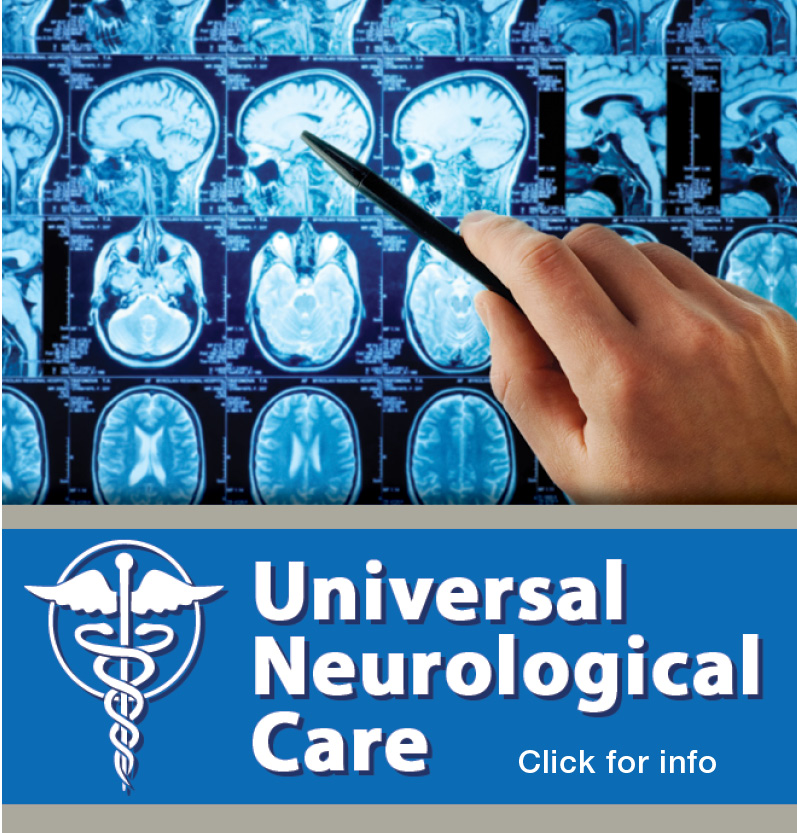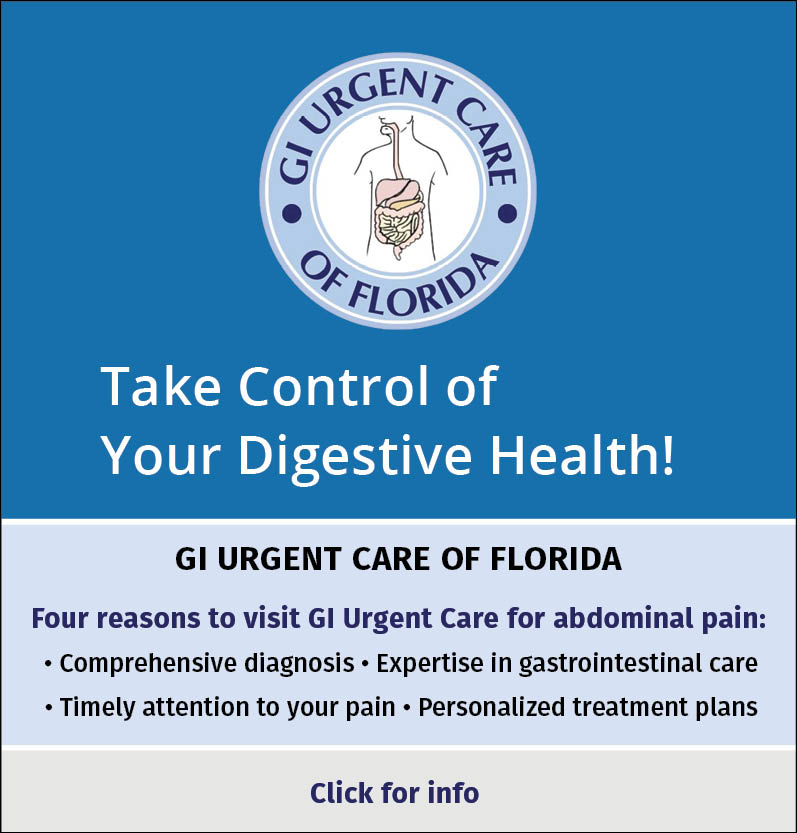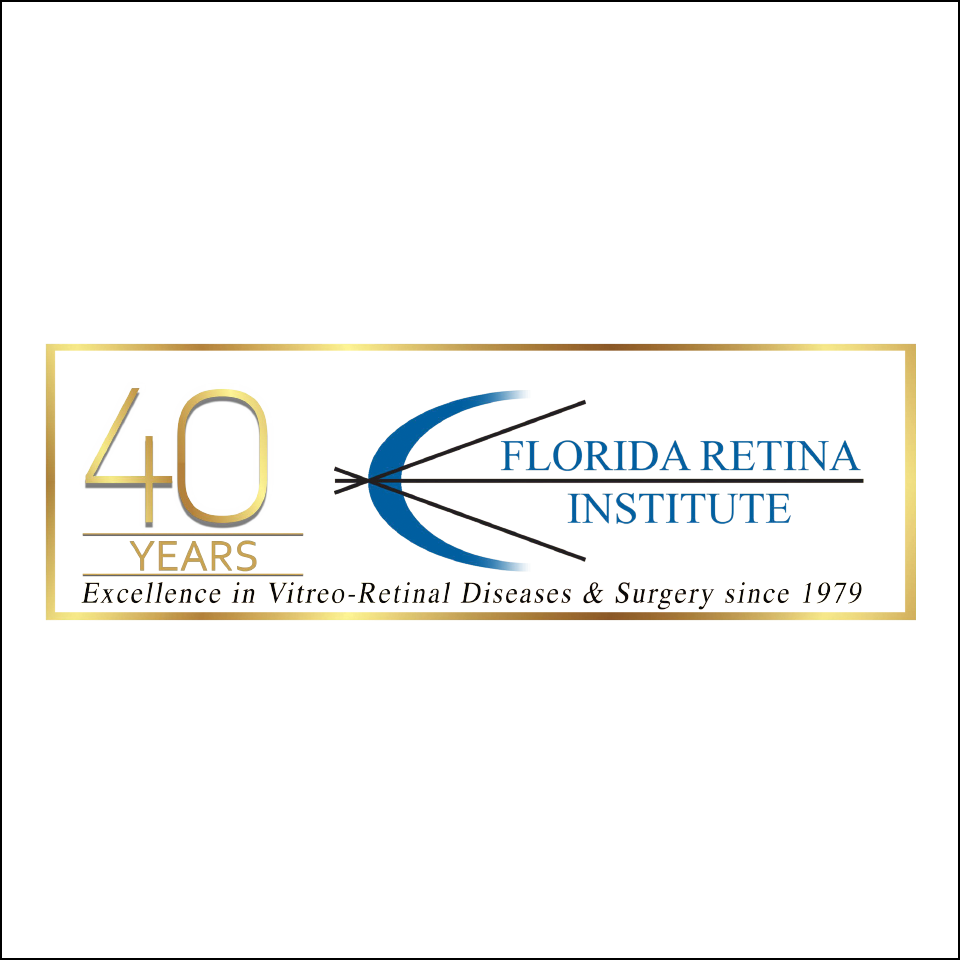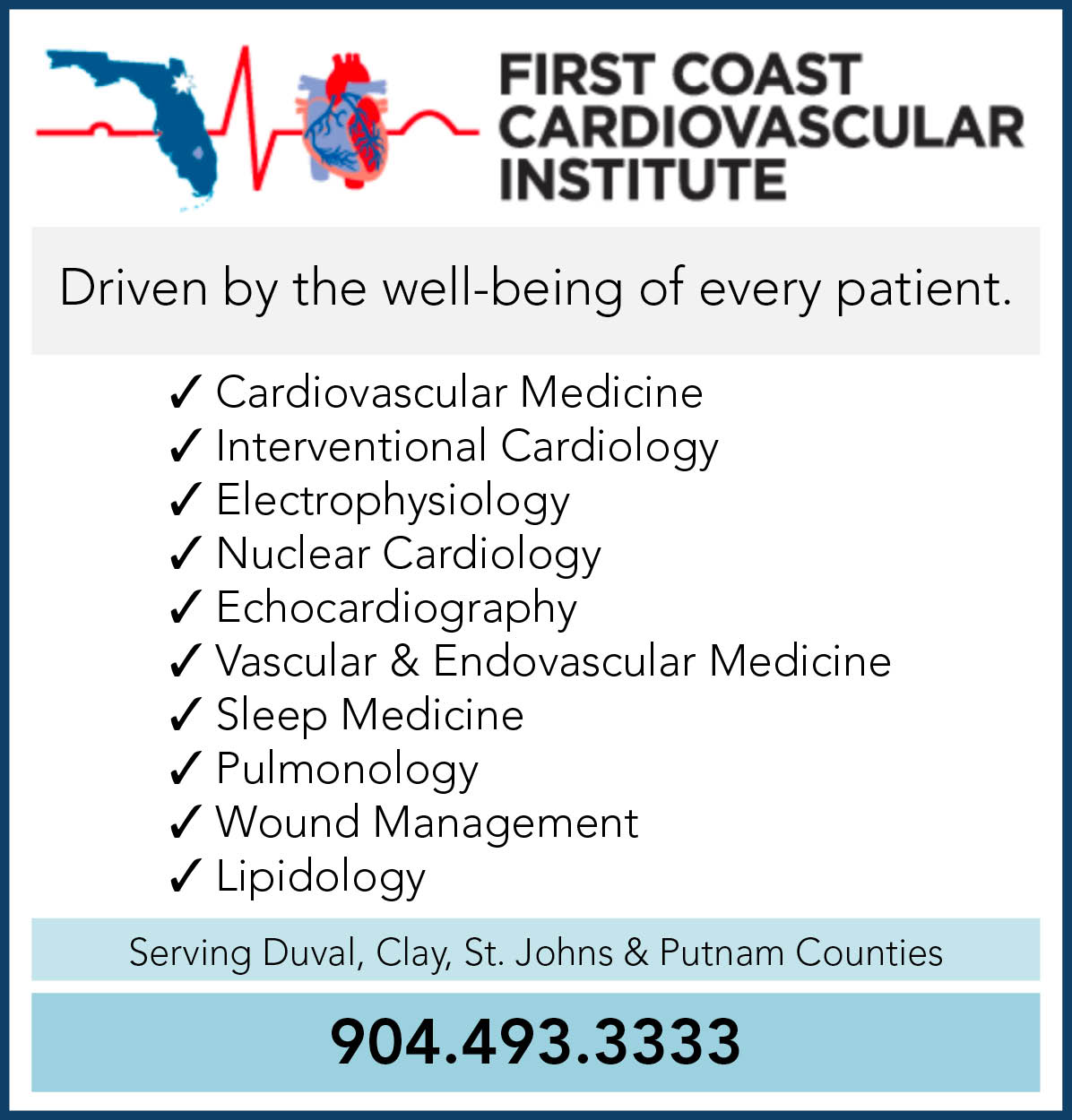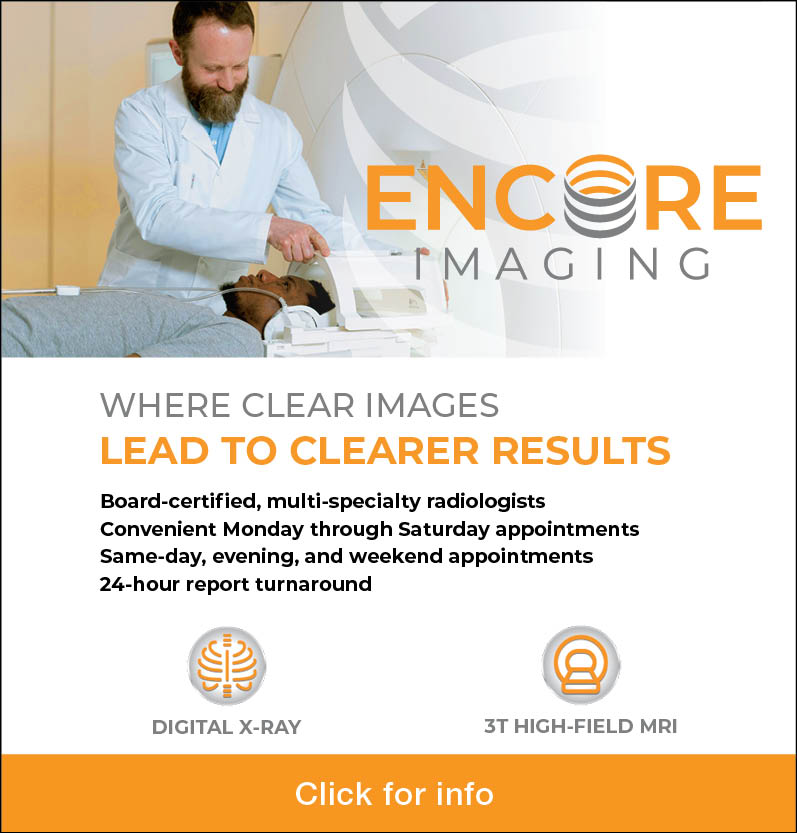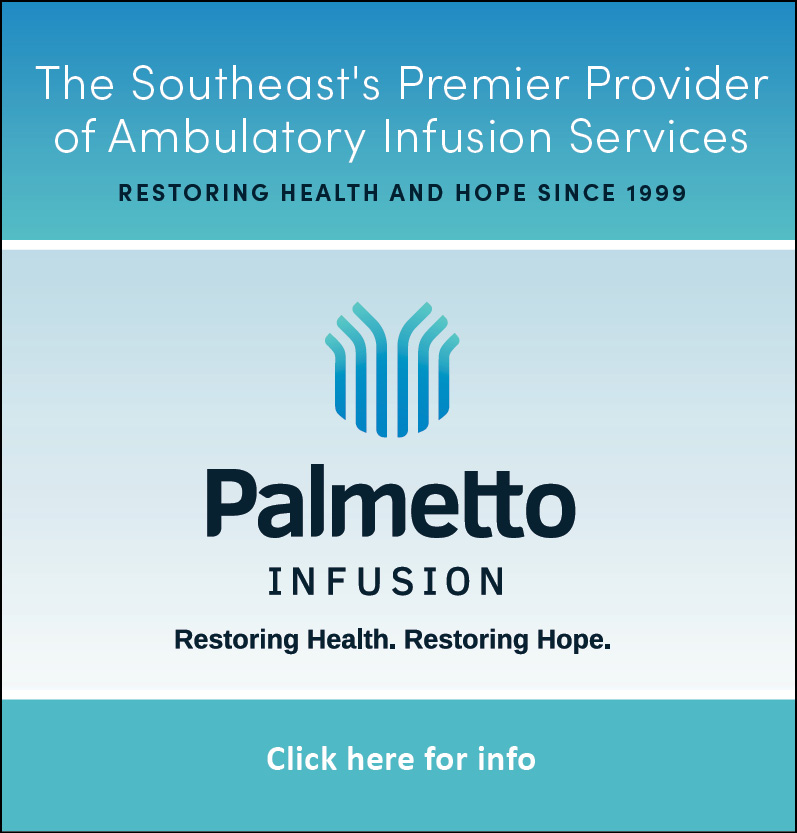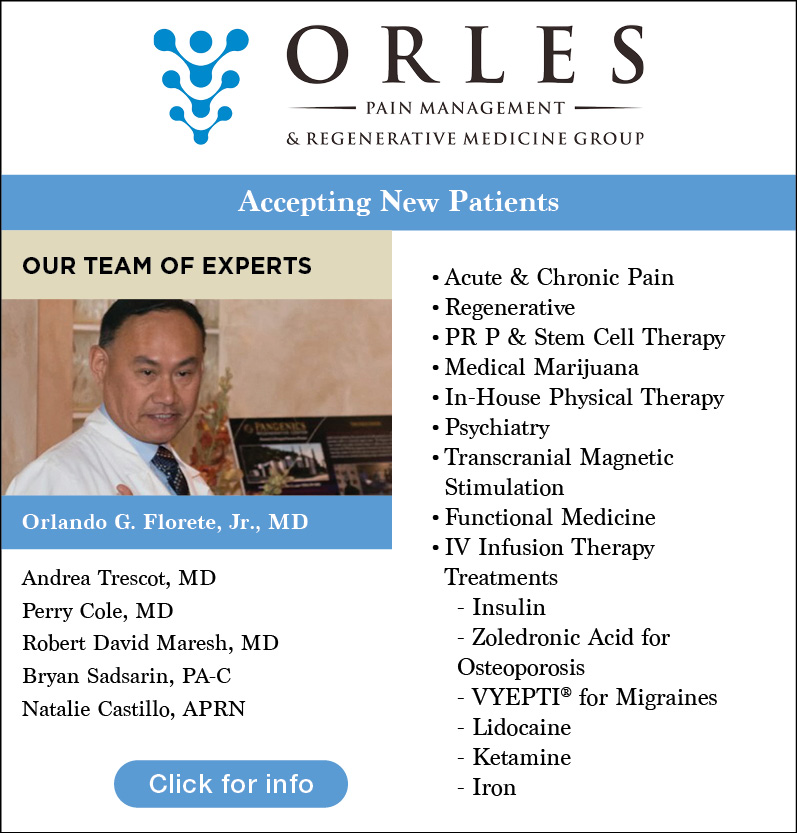First comprehensive Tricuspid Valve program in Florida: Baptist Health sets a new standard for cardiac care with two minimally invasive treatments for tricuspid valve disease – Repair and Replacement
Baptist Health in Northeast Florida is the only health system in the state to have performed both cutting-edge, minimally invasive treatments to address tricuspid valve-related blood flow issues in the heart.
Jacksonville, Fla. November 11, 2024— Baptist Health is advancing cardiac care in Florida as the first health system in the state to have performed the first commercial Transcatheter Tricuspid Valve Replacement procedure, conducted by expert team of cardiologists Ruby Satpathy, MD, Siddharth Wayangankar, MD, and Alejandro Pena, MD. In doing so, Baptist Health became the only heart program in Florida with access to both revolutionary technologies – Transcatheter Tricuspid Valve Repair and Transcatheter Tricuspid Valve Replacement. In addition to treating other valves like aortic and mitral valves, the addition of these procedures provides more options for patients with tricuspid valve disease who for decades have had no surgical or minimally invasive treatment options. Baptist Health is exploring the possibilities of these innovative, catheter-based alternatives to open-heart surgery for aortic, mitral and tricuspid valve issues.
About the tricuspid valve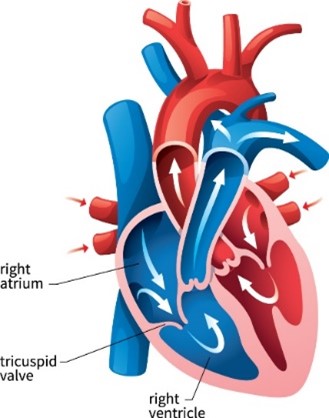 The tricuspid valve, responsible for managing blood flow between the right atrium and right ventricle of the heart, can become weakened over time, leading to tricuspid regurgitation. For people with this condition, blood flows backward into the heart’s chambers and places extra strain on the right side of the heart, forcing it to work harder to maintain normal blood circulation. This can cause symptoms such as fatigue, swelling and heart failure, and eventually other organs like the liver could start to fail.
The tricuspid valve, responsible for managing blood flow between the right atrium and right ventricle of the heart, can become weakened over time, leading to tricuspid regurgitation. For people with this condition, blood flows backward into the heart’s chambers and places extra strain on the right side of the heart, forcing it to work harder to maintain normal blood circulation. This can cause symptoms such as fatigue, swelling and heart failure, and eventually other organs like the liver could start to fail.
The treatment for mild cases of tricuspid regurgitation typically involves managing the symptoms or underlying conditions with medications like diuretics to reduce fluid buildup or beta-blockers to lessen the strain on the heart. Surgical interventions are often recommended for moderate or more severe cases. Traditionally, these patients typically are considered high risk for open-heart surgery and had to travel outside of the region or state for these innovative, minimally invasive catheter-based options.
Improving quality of life
The two procedures, Transcatheter Tricuspid Valve Repair and Transcatheter Tricuspid Valve Replacement, offer individualized approaches to address tricuspid regurgitation without the need for open heart surgery. Through the repair procedure, a catheter-guided device (clip) is placed in the tricuspid valve, helping it to close properly and preventing blood leakage. The replacement procedure involves placing a new valve within the faulty tricuspid valve to restore normal blood flow. Both methods are designed to significantly reduce symptoms and improve a patient’s quality of life, while significantly reducing recovery times and hospital stays compared with traditional open surgery.
“Having access to both transcatheter repair and replacement technologies means we can truly tailor the approach to each patient’s needs,” said Ruby Satpathy, MD, FACC, FSCAI, structural interventional cardiologist and director of the Structural Heart Program at Baptist Health. “As the only heart program in the state with access to both tricuspid technologies, we have now established ourselves as a center of excellence for structural heart diseases. With our high volume transcatheter aortic program, transcatheter mitral program and left atrial appendage closure programs, we’re giving our patients the best individualized treatment with excellent outcomes.”
Siddharth Wayangankar, MD, MPH, FACC, FSCAI, RPVI, structural interventional cardiologist and director of the Cardiac Catheterization Lab at Baptist Health, added: “This is a huge step forward for cardiac care in our state. For years we had no effective treatment options for these challenging patients with tricuspid valve diseases. The technologies that we used for these cases are state-of-the-art and require advanced interventional techniques, imaging guidance and a seamless team-based approach – all of which are the basic pillars of cardiac care at Baptist Health. It’s incredibly rewarding to see the immediate improvement in their symptoms and overall well-being.”
Cardiologist and structural echocardiographer Alejandro Peña, MD, FACC, added: “I believe this will be looked back on in the future as a watershed moment in the care for patients with valve disease. I am very excited about the future growth in structural heart disease care at Baptist Health.”
Emphasizing the unique strengths of Baptist Heart Hospital, Nicole B. Thomas, FACHE, hospital president of Baptist Medical Center Jacksonville, said: “Our cutting-edge structural heart program and state-of-the-art lab empower our expert team to advance cardiac care and deliver unparalleled innovation and expertise to our patients, revolutionizing heart health in Florida and beyond.”
“Our Structural Heart team’s leadership in adopting and pioneering these technologies is evidence of our health system’s commitment to bringing the latest advancements in heart care to the region,” said Michael A. Mayo, DHA, FACHE, president and CEO of Baptist Health. “We are proud to offer patients with valve disease new hope and a significant improvement in their treatment options.”
The chance for a better quality of life is what 86-year-old retired U.S. Army Lieutenant General Daniel Schroeder was hoping for when he had his Transcatheter Tricuspid Valve Repair procedure. His tricuspid regurgitation went from “mild to torrential,” leaving him feeling constantly fatigued. Schroeder said he noticed a change almost immediately after surgery. “My energy increased, and the concern I had felt for months just went away,” he said. He was walking within hours of the procedure.
Mary Alverson and James Ross recently became the first two patients in North Florida to undergo Transcatheter Tricuspid Valve Replacement following commercial FDA approval. “I feel so blessed to have been referred to Baptist Health for this procedure. It’s a miracle really,” Alverson said. “I was retaining more than 30 pounds of fluid in my stomach and legs, which made walking difficult because I could not bend my knees.”
Ross is getting back to doing some of the daily chores he once took for granted. “I don’t know what I would have done without this procedure,” he said. Ross had experienced serious mobility issues for months. Since the valve replacement, his fluid buildup has decreased, and he moves around more easily.
These procedures represent a remarkable achievement for the Structural Heart Program at Baptist Health. Structural heart procedures began at Baptist Jacksonville in 2015, and the program has seen many “firsts” since its inception. The health system is at the forefront of innovations with access to cutting edge technologies via multiple international research trials for Structural Heart devices.
Learn more about the Structural Heart Program at Baptist Health here.
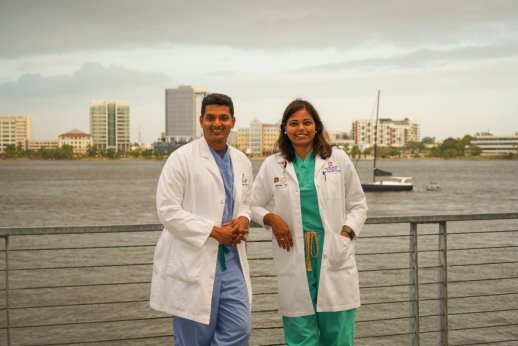
Pictured: Dr. Siddharth Wayangankar and Dr. Ruby Satpathy
###
Physicians providing care at Baptist Health hospitals are not employees or agents of the hospital. Drs. Satpathy, Wayangankar and Pena are employed by Baptist Cardiology, Inc.
About Baptist Health
Baptist Health is a faith-based, mission-driven system in Northeast Florida comprised of Baptist Medical Center Jacksonville; Baptist Medical Center Beaches; Baptist Medical Center Clay; Baptist Medical Center Nassau; Baptist Medical Center South and Wolfson Children’s Hospital – the region’s only children’s hospital. Baptist Health is part of Coastal Community Health, a highly integrated regional hospital network focused on significant initiatives designed to enhance the quality and value of care provided to our contiguous communities. Baptist Health has the area’s only dedicated heart hospital; orthopedic institute; women’s services; neurological institute, including comprehensive neurosurgical services, a comprehensive stroke center and two primary stroke centers; a Bariatric Center of Excellence; a full range of psychology and psychiatry services; urgent care services; primary and specialty care physicians’ offices throughout Northeast Florida; and Baptist Home Health Care by BAYADA. Baptist MD Anderson Cancer Center is a regional destination for multidisciplinary cancer care, which is clinically integrated with MD Anderson Cancer Center, the internationally renowned cancer treatment and research institution in Houston. For more details, visit baptistjax.com.

